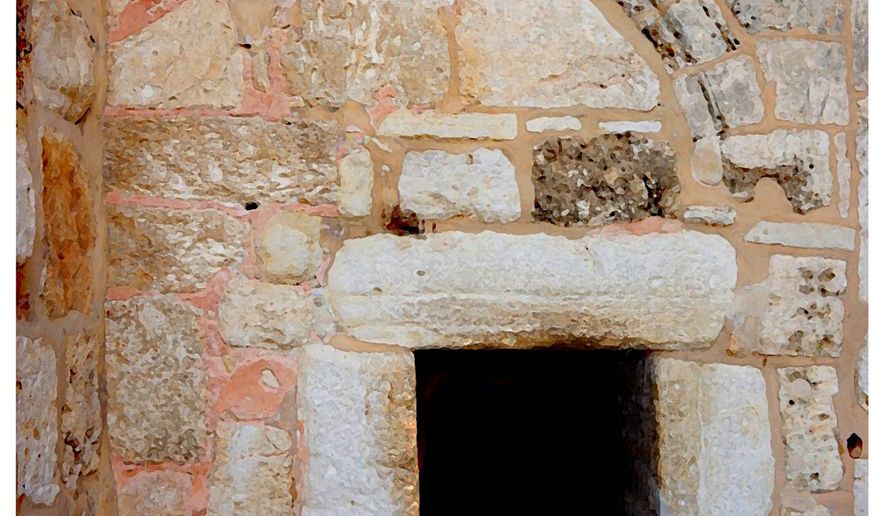OPINION:
Biblical scholars may debate the exact time of year Christ was born, but they do agree on one thing: The Gospels tell us Christ was born in Bethlehem. This Christmas, I am grateful for the time I have spent in the Holy Land, walking in the footsteps of Jesus; it has made the celebration of His birth infinitely more meaningful.
Christianity has deep roots in Israel, the Hebrew Scriptures and Judaism. As Christians, we believe that the prophets foretold the birth of Jesus long before he ever arrived. We believe that Micah prophesied in the 8th century B.C. that the Messiah would be born in Bethlehem; Isaiah predicted He would be born of a virgin; Jeremiah said He would be a descendant of David.
As the executive director of Passages, a program that has taken almost 6,000 American Christian college students on tours of Israel, I have been to the Holy Land 40 times in the past 13 years. But the experience never fails to touch me.
This setting is a significant part of our Christian faith and its origins in Jesus’ birth. We may never know all the details of what took place the night He was born, but we do know that the Christmas story took place in Israel. And today, we can visit many of the sites where tradition holds that the miraculous events of His life unfolded.
Two months ago, I visited the Church of Annunciation in Nazareth, which stands over the cave that early Christians revered as the home of the Virgin Mary. The church is the largest in the Middle East — its massive cupola dominates the city. There have been churches on the site since the 4th century and there, it is believed, the archangel Gabriel told a young Jewish woman that she would give birth to the Son of God. Carved in Latin over the church’s entrance is, appropriately, John 1:14: “The Word was made flesh, and dwelt among us.”
On the main level of the church, the soaring ceiling gives the effect of an infinite connection with the heavens. Bathed in natural light, it is overwhelmingly beautiful. But standing underneath, in the dark, in a tiny grotto believed to be Mary’s home, I felt a powerful connection to the biblical story. I had been there many times before, but I newly sensed the weight of what had occurred there, the awe and fear that must have come over Mary.
This is what visiting Israel does to us, as Christians: It allows the Bible to come alive in front of our eyes.
To enter the Church of the Nativity in Bethlehem, which is believed to be the site of Jesus’ birth, you have to, literally, bow; the doorway is only four feet high. Inside, there are no pews. Columns of red limestone span the space. Wall mosaics more than 800 years old depict an array of angels and saints. A set of stairs leads down to a dim cave known as the Grotto of the Nativity, where a star on the marble floor reads, “Hic de Virgine Maria Jesus Christus natus est” (Here Jesus Christ was born to the Virgin Mary). Standing in this space, one cannot help but feel humbled by its origins, and by the remarkable level of care that has gone into preserving this site for nearly two millennia.
How beautiful the expressions of faith that have taken place there.
These sites, as well as sites like the Church of the Holy Sepulchre, the steps of the Temple Mount and the Sea of Galilee, are breathtaking in their rich history. Walking the steps that Jesus himself walked, and staring up at the hills of the Galilee as he must have seen them, are foundational experiences for believers. Traveling through the Holy Land, one truly comes to understand the origins of Christmas.
In Israel, Christians are a valued minority. Once in a while, you may catch a glimpse of holiday trees or Santa Clauses, but these are few and far between. When you don’t hear Christmas music in every department store, or see Black Friday ads in every newspaper, you have to truly return to the Bible to get into the Christmas spirit. You have to believe in the idea that it really happened.
There is something incredible and moving about celebrating Jesus’ life as it really must have begun - humbly, without all the glitz and dazzle we have come to associate with Christmas (much as I love a good Christmas tree and Christmas music). I personally believe Christmas is a beautiful way to honor the Man who gave his life to save ours, and to rediscover the narratives that make the Bible such a powerful testament of his life. There is no better place to do this than in the place where it all began.
• Scott Phillips is the executive director of Passages, a non-profit organization offering Christian college students a fresh and innovative approach to experiencing the Holy Land.




Please read our comment policy before commenting.